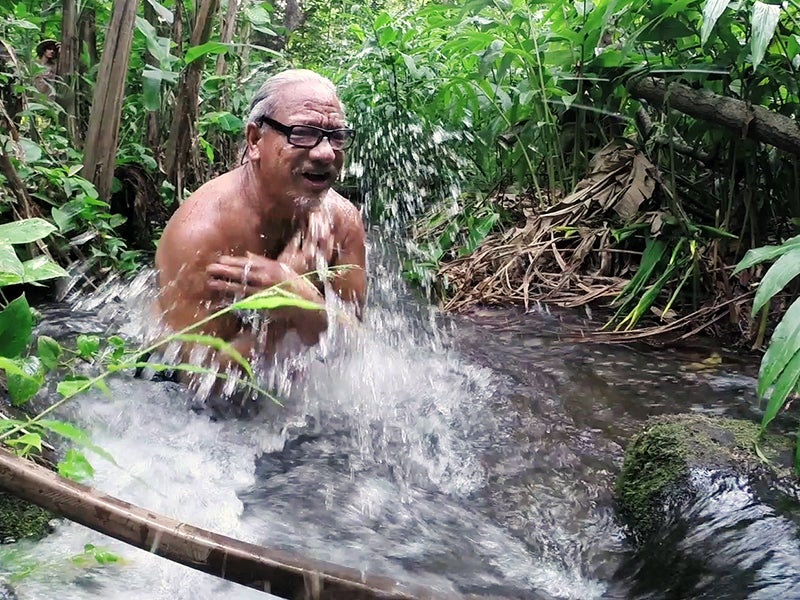Turning the Tide of History: Maui Waters Flow Again After 150 Years
Flow has returned to two streams on Maui that have been diverted for more than 150 years.

This page was published 11 years ago. Find the latest on Earthjustice’s work.
Today, flow will return to two streams on Maui that have been diverted for more than 150 years.
This restoration of Wailuku River (also known as ʻĪao Stream) and Waikapū Stream is a result of an ongoing Earthjustice campaign on behalf of Maui community groups Hui o Nā Wai ʻEhā and Maui Tomorrow Foundation to restore instream flows to Nā Wai ʻEhā—“The Four Great Waters” of Waiheʻe, Waiehu, Wailuku, and Waikapū.
It was here in Wailuku and Waikapū that the first sugar plantations on Maui began draining the streams more than 150 years ago. In a sense, today’s restoration of flow brings us full circle to where the private diversions of stream flows and deprivation of Native Hawaiian communities and stream, wetland, and nearshore ecosystems began.
Wailuku River, the second largest river on Maui (next to Waiheʻe River) and one of the ten largest in the state, flows through ʻĪao Valley and the Wailuku region, a cultural and historical epicenter of the island. Waikapū Stream flows through the neighboring Waikapū region and is the primary freshwater source for the Keālia Pond National Wildlife Refuge and Māʻalaea Bay.
We began this legal action over 10 years ago, in June 2004. Together with our long-time ally, the Office of Hawaiian Affairs, we took the case all the way to the Hawaiʻi Supreme Court, which ruled in our favor in August 2012.
Under a settlement approved by the state Commission on Water Resources Management in April 2014, the two companies diverting these waters, Wailuku Water Company and Hawaiian Commercial & Sugar, agreed to restore up to 10 million gallons per day (mgd) to Wailuku River and 2.9 mgd to Waikapū Stream. The settlement also maintained the restoration of 10 mgd and 2.5 mgd to Waiheʻe River and Waiehu Stream, respectively, which the Commission initially ordered in 2010.
Our work to rectify 150 years of injustice is far from over. In addition to releasing water, the diverters still must modify their diversion dams to eliminate dry stretches and ensure passage of native stream life. We are also engaged in ongoing proceedings to regulate uses of Nā Wai ʻEhā stream water via permitting, which will further increase accountability over stream diversions.
Nonetheless, today we can take a moment to celebrate this hard-won and long-awaited victory. All four waters of Nā Wai ʻEhā are now flowing for the first time since the 19th century.
Over years of dedicated effort, many people helped to make this moment a reality. This moment is a tribute to them and their commitment and belief in justice, which turned the tide of history for Maui’s Four Great Waters.
Established in 1988, Earthjustice's Mid-Pacific Office, located in Honolulu, Hawaiʻi, works on a broad range of environmental and community health issues, including to ensure water is a public trust and to achieve a cleaner energy future.